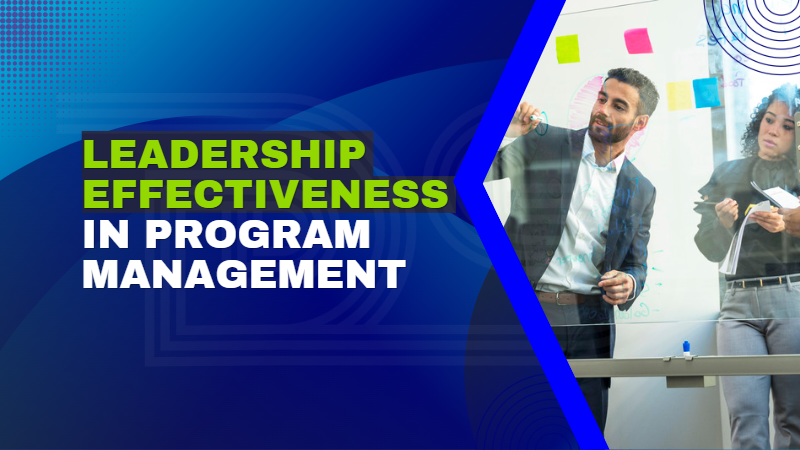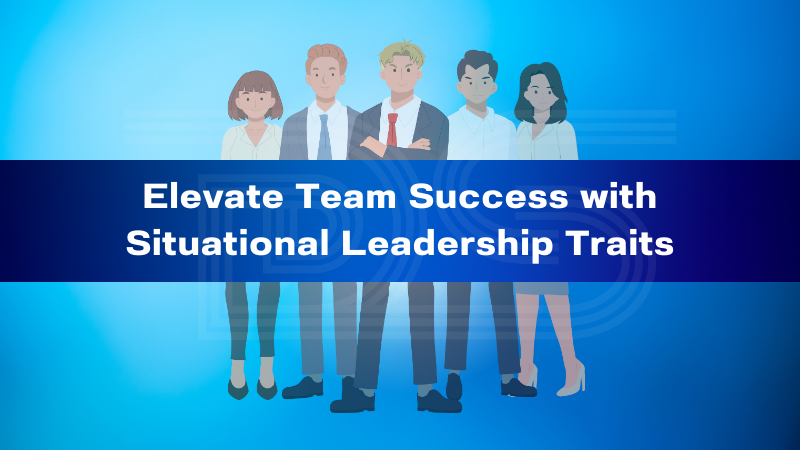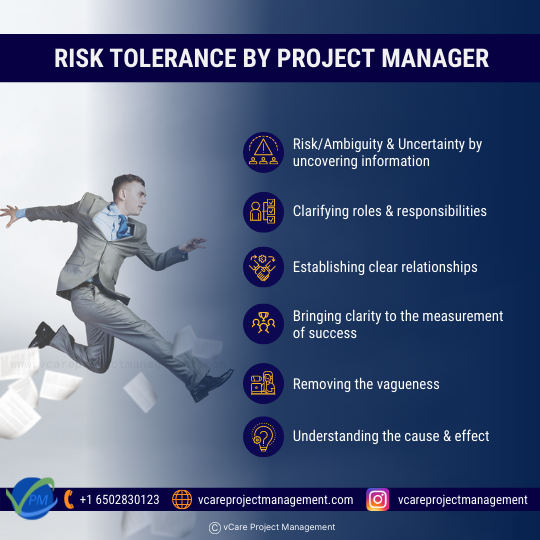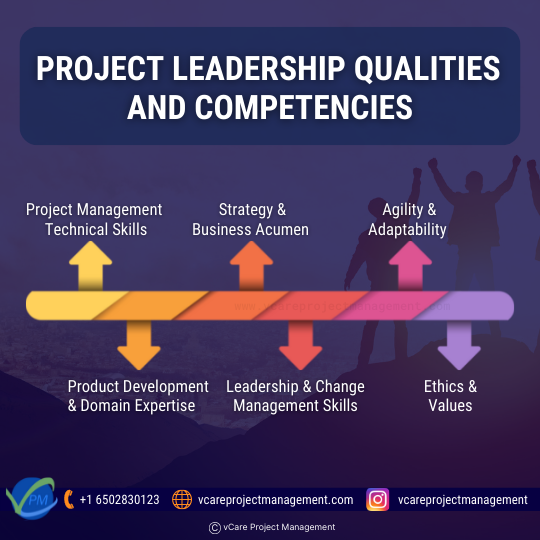
by Dharam CW2 | Mar 15, 2024 | General
Managers who practice both strong management and effective leadership skills are successful project managers. Management skills are different from leadership skills. Effective leaders develop new leadership skills to enhance the ones that help them succeed as managers.
Organizations require effective leaders to achieve their strategic goals through programs and initiatives. Therefore, organizations need successful project/program managers who are also effective leaders. But what kind of leadership skills do project managers require? Are project management skills insufficient?
Project management differs from leadership. However, although project management differs from leadership, the two have some similarities. For instance, the performance of a project manager and the leader’s efficacy are both judged in terms of the performance of the followers—the team’s performance. As a result, focusing on team performance is a critical component of building project managers’ leadership skills.
Leadership Effectiveness

Leadership Effectiveness
On a macro level, leadership effectiveness is defined by a leader’s ability to gain support and influence throughout an organization to guarantee that everyone is going in the same direction to achieve common goals. It effectively measures a leader’s ability to lead, influence, manage, advice, and build their team members. The total growth and performance of the teams may be used to assess leadership effectiveness. Those who report high levels of productivity, performance, employee happiness, and well-being indicate high levels of leadership effectiveness.
A good leader inspires the best in others. These leaders understand how to create the ideal corporate vision, establish the proper values, and assist employees in focusing on and improving their skills. Great leadership reflects great performance, not just complex numbers. Workers and the organization will improve if leaders establish a great corporate culture and help employees thrive.
Program management
According to the Standard of Program Management – Fourth Edition, Program management is “the application of knowledge, skills, and principles to a program to achieve the program objectives and to obtain benefits and control not available by managing program components individually.” Program management involves aligning program components to ensure goals are achieved and benefits are optimally delivered. Program management is performed by a program manager authorized by the organization to lead the team(s) responsible for achieving program goals and objectives.
Ways to improve leadership effectiveness in Program Management

Ways to improve leadership effectiveness in Program Management
- Ensure clarity and visibility of goals
You may begin your path to improve leadership effectiveness in your business by encouraging leaders, managers, and executives to focus on objective clarity and visibility. This move has multiple aspects. First and foremost, the goals must be very clear. As a result, goals must be SMART for effective leadership, and adopting an OKR approach will make sense.
Second, for comprehensive visibility, the goals must be communicated to everybody. On the one hand, everyone in the team has to understand the organization’s goals and their role in attaining them.
- Facilitate accountability and responsibility
Second, exercising accountability and responsibility is critical for leadership success. Encourage your leaders to take accountability for their actions. The goal is to encourage them to be interested in increasing their leadership effectiveness. This aspect requires determining which skills and abilities to be acquired, as well as aspects such as emotional intelligence and empathy. When your leaders seek to improve themselves, they usually set a good example for others to follow, increasing their effectiveness as leaders since they may start a positive trend.
- Create a culture of feedback
Leadership effectiveness is heavily influenced by a leader’s desire to improve oneself. It is optional to self-assess the deficiencies and work on upskilling in this situation. Instead, it is critical to foster a feedback culture. First and foremost, it is vital to provide feedback to employees on their performance and to assist them in improving and growing along the way. This move will immediately influence organizational goals and define increased effectiveness.
Second, encourage your leaders to be receptive to employee input as well which will assist them in seeing and comprehending the gaps in their leadership style that may impede their success as a leader. Creating a feedback culture can promote improved outcomes, eventually enhancing leadership effectiveness.
- Build trust and transparency
Trust and openness are required for leaders to influence, direct, and build their teams to success. When employees trust their supervisors or leaders, they will follow them fully and offer their all. If not, following their manager will be a pointless exercise limiting leadership effectiveness.
Similarly, it is critical to be open and honest with all employees. Secrets, nepotism, preferences, and biases will be self-defeating if you want your leaders to inspire everyone collectively. Instead, everyone must be treated equitably, and all processes must be transparent to acquire team trust and influence them.
- Focus on continuous performance management
Effective leadership is not just about motivating and encouraging team members to follow a leader or manager but also about doing so in a way that leads to achieving a certain objective or high level of performance. As a result, boosting leadership effectiveness necessitates emphasizing continuous performance management.
Employees grow and develop when their leaders or managers regularly monitor and track employee performance and give frequent interventions and corrective steps to minimize risks or problems. As a result, they can motivate and inspire their team members, resulting in increased leadership effectiveness.
- Respect differences and promote inclusion
Members of each team come from various backgrounds, bringing with them different perspectives, ideas, and opinions. An effective leader accepts these differences, appreciates them, and recognizes their value. To boost leadership effectiveness, you must cultivate an inclusive culture. In addition, your leaders must understand the important skills and competencies each team member brings to the table and how the multiple views and perspectives offer the ideal breeding environment for creativity and success, resulting in leadership effectiveness.
- Foster a growth mindset
The last recommended practice for increasing leadership effectiveness is cultivating a growth mindset. It would be best to encourage your leaders to have a growth mindset during all interactions or choices they make. For example, when dealing with a team member, they must keep the employee’s personal and professional development in mind. Likewise, when making a strategic choice, they must link it with the organization’s goals and how it will eventually contribute to its success. With a development mentality, your leaders will guarantee that they lead effectively, strategically, and in the greatest way possible.
Leadership in Project Management
Leadership in project management is a vital ability for completing the project effectively. Leadership in a project setting, like leadership in other areas of business, necessitates demonstrating many talents and behaviors. Leadership is essential to ensure your initiatives’ success, from team direction to project governance.
Leadership and project management go hand in hand. You oversee the project and lead the team as the project lead. Setting the vision and encouraging the team to work together to accomplish it is a vital component of leadership. You can see how significant that is in a project environment. Delivering any project requires a team effort. While some teams work without a clear leader, in today’s business, it is more customary for someone to be in the leadership role, guiding and directing the team toward their goals.
5 Essential Project Leadership Skills
Influential leaders draw on many essential project management skills and competencies. The top five project management leadership skills are:

5 Essential Project Leadership Skills
- Communication
One of the essential project management characteristics is communication skills. Communication skills are essential for project leaders since their job requires collaboration. You can only collaborate efficiently if you can communicate clearly. Leaders can communicate ideas to people and groups in person, over the phone, or through other modes of communication. Therefore, communication is one of the most important abilities of a program manager, especially in a leadership role.
- Team leadership
The leader establishes the vision. They motivate others around them. Someone with outstanding project leadership skills fosters team agreement and togetherness while managing day-to-day team activities.
Team leadership on projects entails establishing an atmosphere in which everyone may thrive. People are drawn to the project culture that surrounds them. Stakeholders want to participate in the project because they know you will complete the task while creating a pleasant working environment.
- Motivation
Leaders inspire people to act even when they are not technically in control. As a program manager, you figure out what makes the other team members feel like they’re doing their best, and you do your best to deliver it to them.
Everyone is driven differently, and a person’s motivation can shift over time. Great leaders realize these distinctions and enable their employees to accomplish their best by fostering a happy work environment.
- Crafting solutions
Empowering the team and the larger stakeholder community to participate in developing solutions is part of fostering a positive working culture. That entails removing obstacles so each team member may fulfill their work and contribute new ideas without worrying about something getting in the way. Empowering leaders will also drive decisions down the hierarchy to the lowest possible level, allowing specialists to judge the solutions required to keep the project going.
- Conflict resolution
Conflict is inevitable when introducing or altering anything. However, effective leaders understand how to use conflict for good since the finest solutions emerge when ideas are challenged.
Conflict may benefit teams because it allows all voices to be heard and opposing viewpoints to be expressed, frequently leading to a better solution and more effective project outcomes. However, leaders must be prepared with conflict resolution tactics to recognize and address conflict before it becomes a problem for the team.
The Challenges of Leadership Effectiveness

The Challenges of Leadership Effectiveness
- Development of managerial effectiveness
To improve their leadership effectiveness, project leaders must acquire the following skills:
- Time management
- Task prioritization
- Strategic thinking
- Goal-setting ability
- Good judgment
These are essential skills for a project leader to deliver effective projects and handle the possibly competing demands of many duties. Without them, a leader is more prone to burnout from focusing on irrelevant matters and achieving little of the planned tasks and objectives.
- Inspiring and Motivating the Workforce
Motivating and inspiring others to follow you and act in a specific manner is a skill that some people appear to be born with, and others must learn. However, whether you have an inherent talent for motivating others or not, it is a skill that every project leader must have to motivate their worldwide workforce.
Passion is an important aspect of inspiring and encouraging people. Passionate leaders ignite the fire in their team members, allowing innovation to flourish and encouraging everyone to participate. In addition, effective leaders can naturally share and correctly convey their team’s and stakeholders’ enthusiasm and drive.
- Developing Employees and the Rise of “Servant Leadership.”
“Servant leadership” is based on the idea that leaders should not just delegate responsibilities but also consider themselves servants of the people they manage. As a result, their actions are driven by what is best for their team or workers rather than by what is best for themselves, which might manifest itself in the following ways:
- Close collaboration between management structures and employees
- Active participation in the growth of their teams
- Leading by example and embodying the ideals that leaders want to see in their team dynamics
- Using value systems to motivate teams to act rather than spreading fear
- This managerial style is infused with sincerity and humility.
A project leader who can find a balance between the servant-leader management style and more antiquated, authoritarian methods will be able to inspire and encourage their workforce.
- Leading a Team
All diverse cultures and viewpoints must cooperate and contribute to leading a project team effectively. Whether forming a new team or taking over an existing one, leaders must be able to give the support their team requires to cope with and navigate change or to create something entirely new.
Determining the sort of assistance required might take time and effort. Teams are as distinct as the individuals that comprise them. Project leaders must be extremely attentive to detect the demands of their workforce. What works for one person may not work for another. Leaders must be able to modify their management style in response to the demands of their teams.
Final Thoughts
In today’s firms, competent project managers must also be effective leaders. Therefore, successful project managers may use their inventive and creative skills to assist them in acquiring leadership skills that will complement their project management skills by recognizing the difference between project management and leadership and adopting the roadmap to becoming effective leaders.
The shared component of project management and leadership is the yardstick by which the performance of the project manager and the leader is measured. The performance of a project manager and the efficacy of a leader are both judged in terms of the performance of the followers, i.e., the team’s performance.
As a result, improving leadership skills for project managers with an emphasis on skills to increase team performance should be an essential factor in the project management leadership skill development process. Project managers’ essential leadership skills begin with motivating and inspiring teams and individuals. These aspects can be developed via negotiation and communication, listening and influencing, and team-building skills, emphasizing leveraging these talents to improve overall team performance.
For any questions related to your Project Management career, training, and certifications, you can book an obligation free 15 minutes session with me by visiting https://bit.ly/2SbhTOK
You can subscribe to the vCare Project Management YouTube Channel to catch future videos of our Q&A series and certification success stories: https://bit.ly/2YF0wJl
You can subscribe to and follow my podcasts and interviews with Project Management Experts on YouTube at https://bit.ly/2NDY8wd

by DharamCW | Jan 5, 2024 | Leadership in Project Management
🌟 Unveiling the Qualities of Exceptional Situational Leaders 🌟
Situational leadership stands out as a cornerstone for success in the dynamic realm of project, program, and portfolio management. Today, I want to spotlight the essential qualities that define great situational leaders. These traits are not just about leading; they’re about elevating your team to its highest potential.

Qualities of Situational Leaders
A situational leader is someone who:
1. Exhibits Flexibility: Adapts their leadership style to the evolving growth levels of each team member.

Flexibility
2. Builds Trustworthiness: Gains the trust of their team, fostering an environment of reliability and confidence.

Trustworthiness
3. Masters Delegation: Knows when and how to delegate tasks effectively to highly competent and committed team members.

Delegation
4. Hones Coaching Skills: Guides those lacking confidence or ability, ensuring everyone’s on the right path.

Coaching Skills
5. Shows Courage: Isn’t afraid to change their leadership approach, especially when traditional methods no longer serve the team’s needs.

Courage
These situational leadership qualities drive project success and nurture a culture of growth and adaptability. Understanding and developing these traits can be a game-changer in your leadership journey.
🔗 Stay tuned for more insights into the art of effective leadership in project management.
Follow Me On,
Linkedin – https://bit.ly/3jJ0zeS
Facebook – https://bit.ly/3jQRTmV
Instagram – https://bit.ly/3h6xzMB
Twitter – http://bit.ly/3zB4Qv0
Pinterest – http://bit.ly/40H4Fdu
YouTube – https://bit.ly/2NDY8wd

Dharam Singh Social Media
🚀 Elevate Your Project Management Career:
– Please register for my FREE webinar series on PgMP® and PfMP® certifications: https://bit.ly/3Z7kzMl
– Discover training offers and certification discounts: https://bit.ly/3jWVepD
– Book an obligation-free consultation session on PM Career, training, and certifications: http://bit.ly/2SbhTOK
– Stay updated: Subscribe to our YouTube Channels for more insights: https://bit.ly/2YF0wJl and expert interviews: https://bit.ly/2NDY8wd

by DharamCW | Jun 12, 2022 | General
Two relevant quotes which quickly strike our minds when we think about the Entrepreneurial mindset are:
“Building a business is not rocket science; it’s about having a great idea and seeing it through with integrity.” Richard Branson
“At 211 degrees, water is hot. At 212 degrees, it boils. And with boiling water comes steam. And with steam, you can power a train.” S.L. Parker
Ideally, a project’s success is based on the critical success factors identified during the initial stages of the project, which would fall in various areas such as Process, Product, Project Management, Business, and Strategic. When the project can make a positive and long-standing impact on business value, a culture deeply imbibes into people’s minds. It creates an undeniable mark in the overall scheme of things.
Benefits and stakeholders’ satisfaction are the key factors that measure a project’s success. It’s also defined by the level of efficiency the project creates based on the set project objectives. Project success is based on the project success criteria and outcome. Typically, these criteria fall as Meeting the Scope identified, Deadlines and Milestones on time, Within the given budget, excellent satisfaction to the stakeholders, both internal and external, and with specified quality criteria.
Essentially, we all know that various tenets of project management contribute to success. Here, we will discuss how the entrepreneurial mindset would impact project success. Entrepreneurs have some unique characteristics such as being adaptive, decisive, risk-tolerant, persistent, able to handle failure, experimenting, building teams, etc.,
Mindset
One must believe that we can be malleable to unlock our growth as project managers or portfolio managers by transforming into an entrepreneurial mindset. We need to understand what mindset is, then understand the characteristics of an entrepreneurial mindset and how we can embark on that transformation journey from where we are to bring on project success in our project management career.
Mindset is an essential set of beliefs that provides a shape in terms of the view one has on the world and themselves. It influences how we think, act, feel and respond to a given situation. Typically, mindset falls into two categories as introduced by Carol S. Dweck, which we are all aware of: they are a) Fixed Mindset and b) Growth Mindset.
An entrepreneurial mindset is a growth mindset. Intelligence cannot be developed with a fixed mindset. A growth mindset is all about the belief that intelligence can be developed through personal effort, good learning strategies, and lots of mentoring and support from others. As introduced by Heider, the interpersonal process equation is a product of Ability, Motivation, and Environment.
An entrepreneurial mindset is a set of skills that allows people to recognize and capitalize on opportunities, overcome and learn from setbacks, and succeed amidst challenging backdrops. An entrepreneurial mentality is a method of thinking that helps achieve your business objectives. Entrepreneurs who learn from their mistakes and failures have a better chance of future success.
Entrepreneurs boost the economy by creating jobs and developing new products and services that benefit the entire world. A great entrepreneur must be able to think outside the box and come up with out-of-this-world ideas.
Entrepreneurial mindset and project management

7 Entrepreneurial Traits
Though there is a common belief that entrepreneurship cannot be taught, and they should be born, studies have proven that it’s a myth. Typically, entrepreneurs search, seize and exploit the opportunities while mitigating them through engagement, courage, and perseverance. The following are the entrepreneurial traits that are generally encompassed in an entrepreneur:
- Commitment and Determination
- Courage
- Obsession with opportunity
- Risk tolerance
- Creativity
- Motivation to excel
- Leadership
An entrepreneurial mindset fosters more value for projects. Your project teams are encouraged to solve business problems and develop creative and innovative ideas. When a leader allows the teams to be creative and innovative, they will be more productive and engaged in the project.
The journal “People’s confidence in innovation” indicates that confidence in innovation is a component of the entrepreneurial mindset. In several ways, confidence in innovation can be considered part of the entrepreneurial mindset.
- First, entrepreneurs have more confidence in innovation than non-entrepreneurs.
- Second, confidence in innovation is positively related to other aspects of the entrepreneurial mindset, most notably self-efficacy, opportunity alertness, risk propensity, and role-modelling.
- Third, according to (Nochian and Schtt’s 2012) study, entrepreneurs are not like other people. Instead, their network appears to be the source of their confidence. In the same way, highly networked owners or managers are highly confident in innovation.
- Fourth, their innovativeness appears to be a result of their confidence. The more confident entrepreneurs are, the more innovative they are.
Entrepreneurial mindset and Project success
Commitment & Determination
Commitment and Determination would encompass Decisiveness, Tenacity, Discipline, persistence in solving problems, willingness to sacrifice, and being completely immersed in the mission. In the context of project management, each of these characteristics would contribute to the project’s success. For example, it is being decisive in terms of critical path challenges and exhibiting tenacity for unblocking issues without giving excuses for the need of the project and solving problems. Being committed requires a lot of sacrifice and discipline to bring on consistency. When being disciplined, it would require more like a parenting skill which would always course correct in the larger interest of the project, though seen to be tough externally. Discipline is brought about by establishing an unalterable set of rules and regulations to follow for the project’s success.
Courage
The definition of courage is “mental or moral strength to venture, persevere, and withstand danger, fear, or difficulty” (Mish, 1994, 266). Courage could be implemented with excellent values through moral strength, fearless experimentation, unafraid of conflicts, no fear of failure, and intense curiosity amidst facing risk. A courageous project manager would tackle the controversies and conflicts in the project early. A fearless project manager could put his job on the line in the pursuit of doing The Right Thing for the project. Often, the project manager would not have the necessary support and face active resistance, which needs to be managed with resolve to move beyond personal discomfort through intense curiosity.
Obsession about opportunity
An entrepreneur constantly looks for opportunities for improvement. Similarly, project managers consistently look for opportunities for improvement daily by observing day-to-day activities seeking to do more, do better, and do differently. Obsession with opportunity would be recurring, which would preoccupy or intrude on the project manager’s mind. This obsession would naturally shape the opportunity and help focus on project needs. Obsession with opportunities drives business value through the project.
Risk Tolerance
Good project managers would tolerate risk while being calculated risk-taker and risk sharers, thereby minimizing the risks. He would exhibit the characteristic of an entrepreneur by showing the ability to manage stress/conflict and ambiguity. Especially when the project has larger integrations and frequent changes would increase the ambiguity and uncertainty proportionally. Generally, the unknowns which are in the project would cause ambiguity. The ability to understand those would help identify the risks involved. PMBOK defines these areas in terms of Risk tolerance, Risk appetite, and risk threshold. It guides the management of these effectively through appropriate processes involving planning, controlling, and appropriate level of communication.

Risk Tolerance
Project managers should learn how to maneuver ambiguity. As ambiguity would be sinusoidal over time, it would arise and settle. The project manager must manage risk/ambiguity and uncertainty by uncovering information, clarifying roles and responsibilities, establishing clear relationships, bringing clarity to the measurement of success, removing the vagueness, and understanding the cause and effect.
Creativity
So what is creativity? In “The Social Psychology of Creativity,” Amabile (1983) defines creativity as,
“A product or response will be judged as creative to the extent that (a) it is both a novel and appropriate, useful, correct or valuable response to the task at hand, and (b) the task is heuristic rather than algorithmic” (p. 33).
Creativity can be multiple things. It would always push your limits by being open-minded, lateral thinking, ability to conceptualize by going into details, and ability to adapt. Creativity can be unleashed in project setup during Brainstorming sessions, Root Cause Analysis, Force field analysis, Affinity Diagrams, SWOT Analysis, etc. Creativity can be fostered further by open communication and providing an environment for the resources involved. As a project manager, one needs to remove the mental blocks like “Always looking for the right answer,” “avoiding ambiguity,” “I’m not creative,” “Always looking for concrete answers,” and “That’s not my area,” etc., Encourage creative aspects through “Why not like that,” “Let’s explore more,” “what value it would bring in,” etc.,
Motivation to excel
There is a popular phrase. Projects don’t succeed; people do. Typically the project’s success is always attributed to the people. People tend to have a goal and result orientation and need a self-imposed drive to achieve the results. Typically entrepreneurs keep motivating themselves and others around them despite all odds. People involved in projects need interpersonal support, understanding of weaknesses, and guidance to overcome them. Essentially aspects like having a sense of humor and perspective on the value they are adding to the project would motivate them to do better. The project manager’s responsibility is to understand individuals and adopt appropriate motivations strategy based on their needs, desires, and goals. They reward the team and its members creatively by recognizing their strengths. Make the project goals and success factors visible to the entire team. They are clarifying how the performance will be validated as an exact measure.
Leadership
Leadership is one of the essential traits entrepreneurs have. They would be self-starters and have a strong internal locus of control. Locus of control is the degree to which people believe that they, as opposed to external forces (beyond their influence), have control over the outcome of events in their lives. The concept was developed by Julian B. Rotter in 1954 and has since become an aspect of personality psychology. Project managers with an Internal Locus of Control believe that every event in their life derives from factors under their control. These individuals tend to blame or praise themselves for whatever success or failure they experiment in life. They would have enormous patience, integrity, and reliability. They would build teams and more leaders. Key attributes of communicating with a project management mindset include empathy, clarity, authenticity, and flexibility.

Project leadership qualities and competencies
Successful projects come as an outcome of a well-coordinated team effort. Project managers as leaders know their team very well.
The entrepreneurial mindset’s key aspects of a project’s success
Being confident and open-minded is crucial for a project professional with an entrepreneurial mindset. It’s about being self-assured, optimistic, and never afraid to take risks. Every day, if you have an entrepreneurial mindset, you will be ready to take action to achieve your goals and acquire project success.
While some scholars have examined aspects of the entrepreneurial mindset and provided general insights into its attributes, qualities, and operations, the question remains how people tap into it.
- The cognitive aspect—how do entrepreneurs use mental models to think?
- The behavioral aspect—how do entrepreneurs engage or act for opportunities?
- The emotional aspects—what do entrepreneurs feel in entrepreneurship?
Project leadership qualities and competencies
When the project requires success, both project managers and project sponsors should take up the role of a project leader by demonstrating leadership talents, competencies, and entrepreneurial mindsets. The following are the most significant features of effective project management:
- Project management technical skills
- Product development and domain expertise
- Strategy and business acumen
- Leadership and change management skills
- Agility and adaptability
- Ethics and values
Conclusion
The entrepreneurial mindset is an important factor leading to project success. Many leading authors agree with this point of view and are researching to substantiate this grounded theory. This endeavor to bring out the factors associated with the project manager’s leadership style profoundly impacts project success.
Feel free to check out my discussion on this topic with Thomas Walenta in YouTube
You can subscribe and follow my podcasts and interviews with Project Management Experts on YouTube at https://bit.ly/2NDY8wd
You can subscribe to vCare Project Management YouTube Channel to catch future videos of our certification Q&A series and student success stories using the link https://bit.ly/2YF0wJl
For any questions related to Project Management career, training, and certifications, you can book an obligation free 15 minutes session with me by visiting talktodharam.com



















Recent Comments